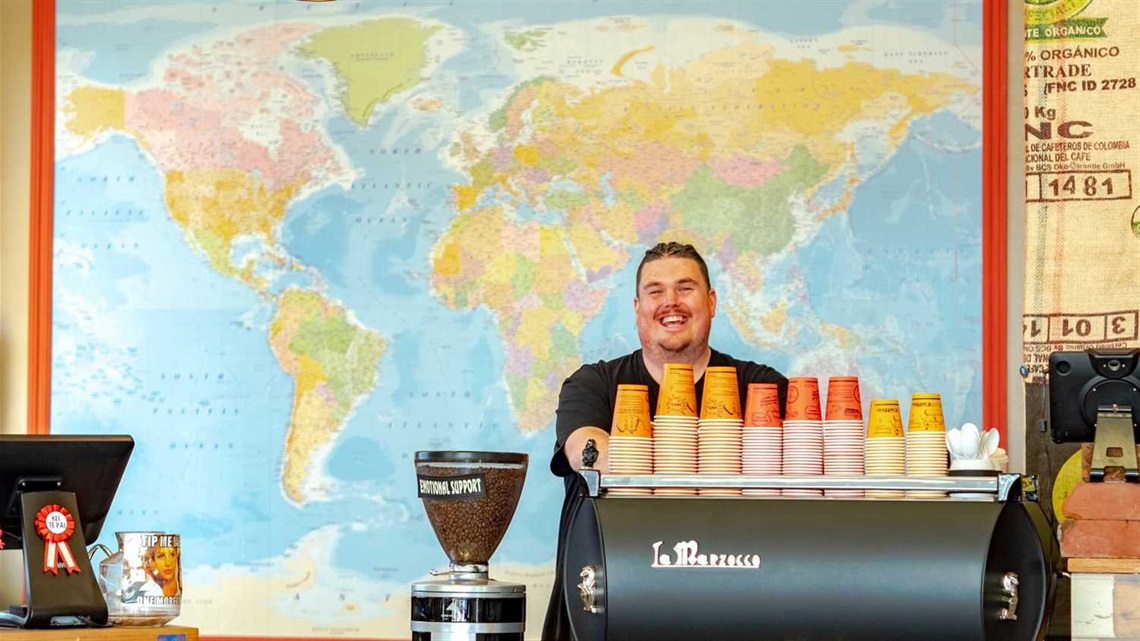From landfill to refills – Palmy’s eco-café movement
Published on 16 October 2019

New Zealanders are a nation of coffee drinkers – and it’s a well-known fact that we make a mean cuppa. Palmerstonians are no exception when it comes to the nationwide coffee obsession, except for one emerging trend. Palmerston North cafés are answering the sustainability call and trading landfills for refills.
There’s now a movement towards compostable to-go coffee cups. Andy Hughes, of Cuba Street’s Sublime Coffee Roasters, says their customers were instantly on board with the idea of compostable cups. “Our team and customers have been instrumental in driving this project. Without their efforts, it wouldn’t be possible.”
The journey from coffee to compost was an easy one for this understated espresso bar.
“We use compostable packaging for our takeaway coffee cups and lids because we want to make a difference, and believe composting is a good way to divert waste from the landfill.”
Sublime’s Palmy espresso bar composts 500 cups each week. This equates to a staggering 26,000 coffee cups per year.
And Sublime isn’t alone in its desire to offset its ecological footprint
Visitors can pick up an eco-conscious cup from the city airport’s Touch and Go Café, or Ignition Café. Even small businesses like Coffee GoGo Espresso Bar and Micro Roastery take part. These businesses offer a financial kickback to customers who bring their reusable cups.
Our city's eco-conscious cafés encourage coffee junkies to dispose of their cups in-store so they can be properly composted. Or better yet – bring a reusable cup!
Sublime's Palmy location alone is diverting a staggering 26,000 coffee cups a year from landfill.
Why compostable cups are important
It’s a little-known fact that takeaway coffee cups are not recyclable, as they’re often lined with plastic. There are strict rules when it comes to composting, and things such as coffee cups need to be made from plant-based materials. This is so they will break down with other organic material.
Commercial composting uses hotter temperatures than most backyard bins. It takes about six months to break down the material, and the temperature sits at 60°C. Here in Palmerston North, the compostable packaging must follow Australian or European Standards.
What happens to the compostable to-go cups?
We take the waste collected from our local businesses and use it to make compost at our Awapuni Resource Recovery Park. The service comes at a minimal cost to businesses and locals can then buy the compost for their home gardening needs.